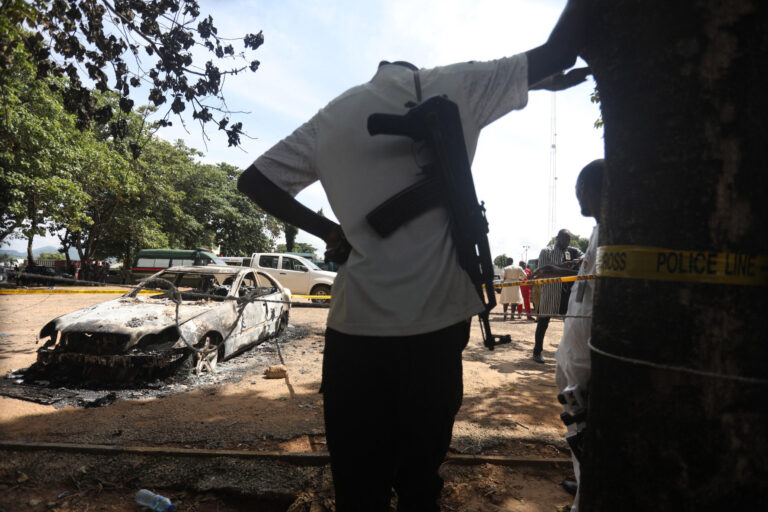Coordinated suicide attacks claimed the lives of at least 18 people in northeastern Nigeria on Saturday. The Islamist group Boko Haram, which has not officially claimed responsibility for the explosions, has been waging violence in the region for more than ten years.
At least 18 people were killed and 19 seriously wounded in suicide attacks targeting a wedding, a hospital and a funeral in northeastern Nigeria on Saturday, authorities said.
The region has been scarred by more than a decade of violence by jihadist group Boko Haram, which did not immediately claim responsibility for the string of attacks.
In one of three blasts on Saturday in the town of Gwoza, a woman with a baby strapped to her back detonated explosives in the middle of a wedding ceremony, according to a state police spokesman.
“At about 1545 (1445 GMT) a woman carrying a baby on her back detonated an Improvised Explosive Device (IED) she had on her at a crowded motor park,” Borno State police spokesman Nahum Kenneth Daso said.
Women suicide bombers also targeted a hospital in the same town, which lies across the border from Cameroon. Another attack was later carried out at the funeral for victims of the wedding blast, authorities said.
At least 18 people were killed and 42 others injured in the spate of attacks, according to the Borno State Emergency Management Agency (SEMA).
“So far, 18 deaths comprising children, men, females and pregnant women” have been reported, agency head Barkindo Saidu said in a report seen by AFP.
Nineteen “seriously injured” people were taken to the regional capital Maiduguri, while 23 others were awaiting evacuation, Saidu said in the report.
A member of a militia assisting the military in Gwoza said two colleagues and a soldier were also killed in a separate attack on a security post, though authorities did not immediately confirm this toll.
Although Boko Haram has lost ground in recent years, jihadists continue to attack rural communities in Nigeria on a regular basis.
Read moreNigeria’s rural vigilante patrols aim to protect local communities
Over the course of the insurgency, Boko Haram has repeatedly deployed young women and girls to carry out suicide attacks.
The group seized Gwoza in 2014 when its militants took over swathes of territory in northern Borno.
The town was taken back by the Nigerian military with help from Chadian forces in 2015 but the group has continued to launch attacks from mountains near the town.
Boko Haram has carried out raids, killing men and kidnapping women who venture outside the town in search of firewood and acacia fruits.
The violence has killed more than 40,000 people and displaced around two million in Nigeria’s northeast.
The conflict has spread to neighbouring Niger, Cameroon and Chad, prompting the formation of a regional military coalition to fight the militants.
(AFP)



